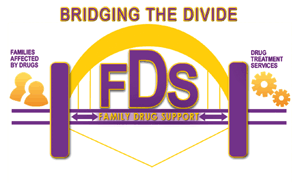INFORMATION & TIPS FOR FRIENDS, PARTNERS & FAMILY MEMBERS IN RESIDENTIAL REHABILITATION OR OTHER DRUG & ALCOHOL TREATMENT PROGRAMS
There are different support and treatment options for people recovering from drug and alcohol dependence.
These can range from:
- Withdrawal units (commonly known as detox) either medicated or unmedicated.
- Live-in residential rehabilitation or day programs.
- Community or Outreach Drug and Alcohol Services.
- Self-help meetings such as Narcotics Anonymous or Alcoholics Anonymous, SMART Recovery and GROW Groups.
- Pharmacotherapies: prescribed medication programs for heroin and other opiate dependence e.g. methadone, buprenorphine (subutex), suboxone.
- Psychologists, psychotherapists, social workers or counsellors (some can be accessed through the Medicare supported Psychologist Referral Scheme – see your local doctor for more information).
- Not all treatments work for everyone. If your family member feels one option isn't working for them, encourage them to try something else or support them to look into a different program or service. A combination of things can be more effective than just relying on one approach.
- The person needs to acknowledge that they have a problem and are willing to get help. In Australia we generally don't have options to force a person into treatment unless they are ordered by the courts (some drug-related criminal offences) or Community Services; where there are children at risk.
- Learn about recovery from drug and alcohol dependence and what's involved.
- Sorting out drug and alcohol issues always takes time and for most people several goes at it.
- For some it may be a very up and down journey and the journey may be long and difficult.
- While they are in rehab, take this time to look after yourself – medical issues, catch up with friends, reconnect with others in the family, work with your own counsellor, psychologist or psychiatrist. Maybe join a support group.
- Life in rehab is like life in general – there are good days and bad days and can be very emotionally turbulent. There may be days when they sound miserable or unhappy. This is not uncommon; being in a rehab program is a big adjustment as is being without drugs and alcohol.
- They may be negative about the program, other people in the program, their case worker/counsellor. It is important not to problem solve but listen and provide emotional encouragement rather than solutions. In general it's best to encourage the person to stay in the program.
- Understand that the person is not just giving up drugs and alcohol they are reshaping and reassessing their whole life and who they are.
- Acknowledge and focus on the positives, the small steps and "successes".
- If you have contact with them on family or visit days do not just grill them about the program and their progress. They often want to hear about regular things; what is going on for you and the rest of the family.
- If a person leaves the program early or is asked to leave, we may need to accept that the time just isn't right or the program is not the right one for them. Focus on what we can do, which is to keep communicating and maintaining our relationship with our family member.



